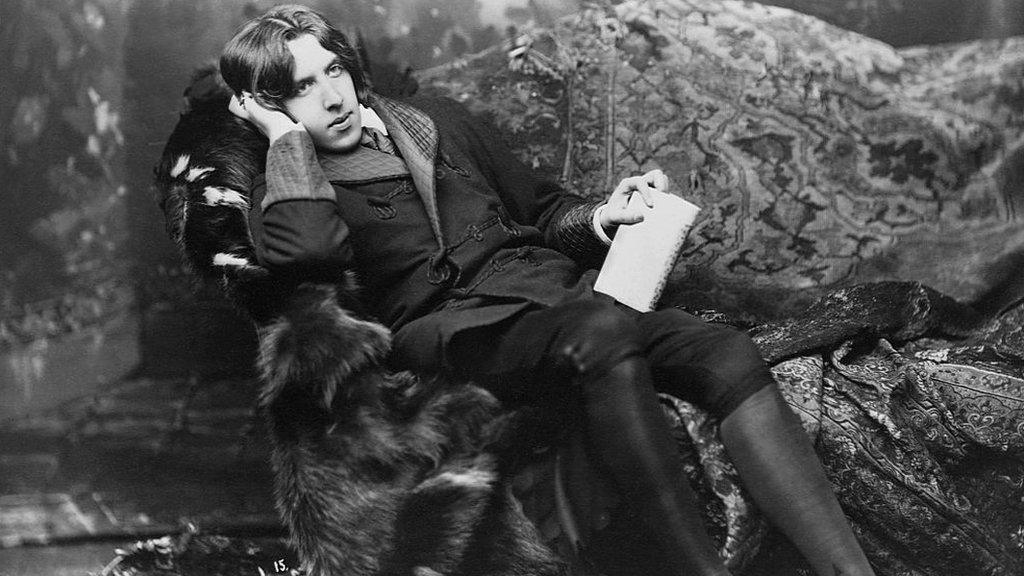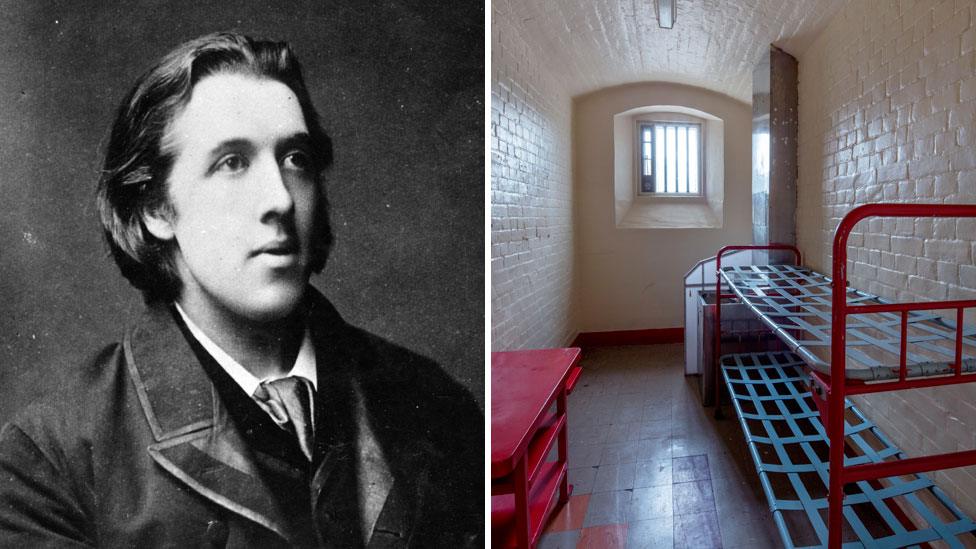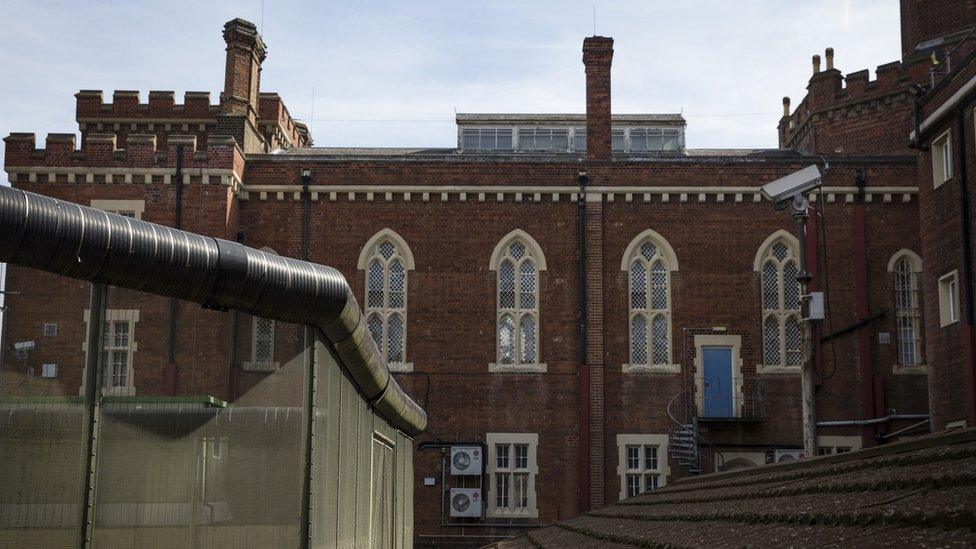Reading jail: Government sells prison where Oscar Wilde was held
- Published

Oscar Wilde was convicted after his affair with Lord Alfred Douglas was exposed
A historic jail which once held Irish poet and playwright Oscar Wilde is in the process of being sold, the government has said.
The Ministry of Justice said the sale of Reading Gaol could be completed in the coming months.
Campaigners and Reading council hoped the space could be used as an arts hub, to recognise Wilde's detention.
The ministry has not confirmed who is buying the site but one rumour is it will be used for "charitable purposes".

Wilde was condemned to his cell at the prison after being convicted of gross indecency - effectively for being gay
Campaign group Save Reading Gaol, along with others including street artist Banksy and Oscar-winning actress Kate Winslet, have been calling for it to become a site for the arts and culture.
It was supporting a bid from the council to buy the space but campaigner Heather Snaith said: "We know it is definitely not being sold to Reading Borough Council."
She says rumour has it the buyer will "use the space for charitable purposes".
Ms Snaith called it a "missed opportunity for Reading and short-term thinking by the government".
On the cultural significance of the site, she says: "This is an important place in Reading's history and a really important place for the LGBT community."
Speaking in the House of Commons, prisons minister Damian Hinds said: "...barring any unexpected complications, completion is expected later this autumn."
Reading council is yet to comment on the proposed sale.
The Ballad of Reading Gaol
Oscar Wilde spent two years at the prison between 1895 and 1897 after being convicted of gross indecency - effectively for being gay.
His health suffered in prison and continued to decline after his release.
He spent the last three years of his life living in exile in France, where he composed his last work The Ballad of Reading Gaol, a nod to his time at the prison.

Follow BBC South on Facebook, external, Twitter, external, or Instagram, external. Send your story ideas to south.newsonline@bbc.co.uk, external.
- Published25 November 2022

- Published5 December 2021

- Published18 May 2021

- Published5 December 2020

- Published5 June 2019
